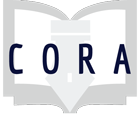During this activity, students work with their lab partners to apply Mike Caulfield’s “Four Moves and a Habit” to a piece of science information they have found on the open web.
Assignments
During this activity, students work with their lab partners to apply Mike Caulfield’s “Four Moves and a Habit” to a piece of science information they have found on the open web.
The assignment was created by Librarian Paizha Stoothoff in collaboration with a Professor teaching Literary Los Angeles. In lieu of a physical tour, students worked on a 3-week project to create digital maps (see assignment attached for details about what maps included).
This assignment was created in lieu of a physical tour of Literary Los Angeles (for a Literary L.A. course). Students worked on a 3-week project to create digital maps (see assignment attached for details about what maps included). The library workshop occured in week 1, after students formed groups and shared to a discussion post in Canvas what author/region/text they would focus on. The Liaison Librarian and Archivist led the library session.
Digital timelines enable us to tell stories visually by connecting non-linear moments: events, reactions, and experiences. This assignment includes a lesson plan and worksheet for teaching with timelines. Timelines work best when they are created as a project for a course, since they take time to develop.
This is a lateral reading 75 minute long lesson plan and worksheet assignment that introduces online source evaluation to undergraduate students, preferably first years. Lateral reading involves researching the content of a source as one reads it and this technique is popular with online fact checkers and journalists. The lesson plan calls for instructors to demonstrate lateral reading live (or via recording if asynchronous) using resources found on Google.
This is session 1 of 3 sessions that I do for Introduction to Evidence Based Medicine in Pharmacy. For this session I had about an hour so the majority of the session is group work. Included are the materials to build the activity, an overview of the lesson (since so much was group work, I wouldn't call it a lesson plan), and the rubric for assessing /grading the activity. This was designed for Zoom/online synchronous teaching. A guide was created to assist with the work in the class (with links to all class activities) and be a place for students to refer back to later.
This lesson is intended as a one hour, single-session overview of one aspect of information literacy: evaluating the trustworthiness of resources, particularly online. The lesson is designed for a group of 10-25 adults in a public or academic library, or is also suitable for high school students. Instructor will teach students how to investigate a source and apply three small but powerful information literacy tools to evaluation: SIFT, PIE, and SMELL.
Background information, assignment, and reflection on analyzing popular information.
Background information, assignment, and reflection on analyzing information received from the news.
